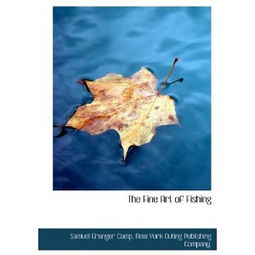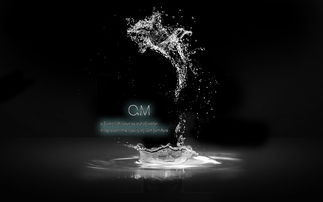Content:
As an avid angler with years of experience under my belt, I've developed a set of fishing techniques that have not only improved my chances of landing a big catch but have also made me a more confident and skilled fisherman. If you're looking to enhance your angling skills and become a true "fearless" fisherman, here's a comprehensive guide on how to learn my proven fishing techniques.
Understanding the Basics
Before diving into the specifics of my fishing techniques, it's crucial to have a solid understanding of the basics. Here are some fundamental concepts to grasp:
Fishing Tackle: Familiarize yourself with the different types of fishing rods, reels, lines, hooks, and lures. Each piece of tackle serves a specific purpose and can greatly impact your fishing success.
Fishing Spots: Learn about the various bodies of water where you can fish, such as lakes, rivers, and oceans. Understand the different species of fish that inhabit these waters and their preferred habitats.
Weather and Seasons: Pay attention to weather patterns and seasons, as they can significantly affect fish behavior. For instance, fish may be more active during certain times of the day or in specific seasons.
Bait and Lures: Experiment with different types of bait and lures to see what works best for the fish you're targeting. Some fish are more attracted to live bait, while others may prefer artificial lures.
Developing Your Casting Technique
One of the most essential skills in fishing is casting. Here's how to develop a solid casting technique:
Choose the Right Rod and Reel: Make sure your rod and reel are appropriate for the type of fishing you plan to do. A light rod and reel are ideal for panfish, while a heavier setup is better for larger species.
Learn the Basic Cast: Start by practicing the basic overhead cast. Hold the rod with a comfortable grip, and position your feet shoulder-width apart. Swing the rod back and forth, keeping your wrist firm and your elbow close to your body.
Perfect Your Timing: The key to a successful cast is timing. Practice casting at different distances and angles to develop a feel for the timing required to land your lure in the desired spot.
Master the Roll Cast: For casting in tight spaces or over obstacles, learn the roll cast. This technique involves rolling the line off the rod tip instead of casting it overhead.
Becoming a Lure Master
Using lures to attract fish can be highly effective. Here's how to become proficient with lures:
Understand Lure Action: Different lures have different actions. For example, a spinnerbait will spin and flutter, while a crankbait will dive and dart. Learn the actions of various lures and how to manipulate them to mimic natural prey.
Practice Retrieval Techniques: The way you retrieve a lure can make a big difference. Practice different retrieves, such as a slow roll, a steady retrieve, or a twitch-and-pause technique, to see which one works best for the fish you're targeting.
Adjust for Water Conditions: Adjust your lure choice and retrieval technique based on the water conditions. For instance, in murky water, use brighter colors and faster retrieves, while in clear water, opt for natural colors and slower retrieves.
Learning to Read the Water
Being able to read the water is a crucial skill for any angler. Here's how to improve your water-reading abilities:
Observe the Water: Look for signs of fish activity, such as splashes, bubbles, or fish rising to the surface. Pay attention to the structure of the water, such as rocks, logs, and weed beds, which can attract fish.
Understand Currents: If you're fishing a river or stream, understand the currents and how they affect fish movement. Fish often hold in areas where the current is slower.
Use a Fish Finder: A fish finder can be a valuable tool for understanding the underwater landscape. It can help you locate fish and identify structure that might hold fish.
Mastering the Art of Patience
Finally, fishing is a test of patience. Here are some tips to help you stay calm and focused:
Set Realistic Expectations: Understand that fishing is not always about catching fish. Sometimes, it's about enjoying the experience and learning from each outing.

Stay Composed: When you're not catching fish, it's important to stay calm and composed. Adjust your tactics and try different approaches.
Learn from Experience: Each fishing trip is an opportunity to learn something new. Reflect on your experiences and adjust your techniques accordingly.
By following these tips and practicing consistently, you'll be well on your way to mastering the art of angling and becoming a fearless fisherman. Happy fishing!












